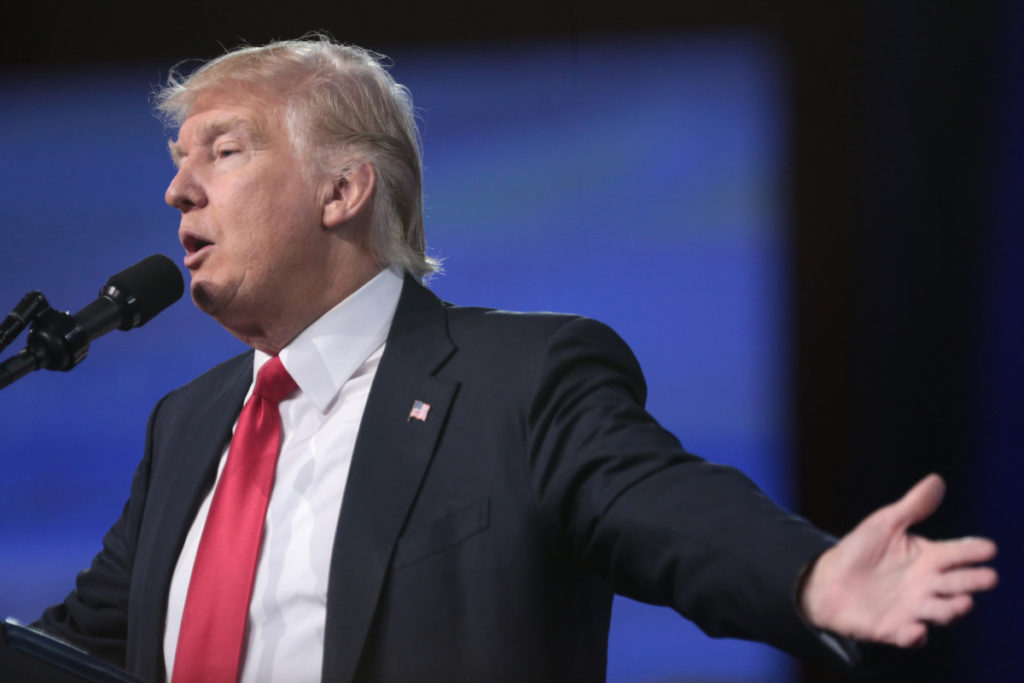The real danger of Trump and the GOP

Imagine being born in a nation where, simultaneously, religious freedom is enshrined in that nation’s Constitution but is expressly forbidden from participating in that nation’s government. Now imagine then migrating to a nation where that nation’s head of state is also the head of its official religion, a religion that has been actively and officially intertwined in its constitution for five hundred years. If you can imagine such a thing, then you would be forgiven for thinking that I am describing a move from a free and enlightened republic to a loathsome, overarching theocracy. Yet the paradoxical truth of the matter is quite the opposite in my case, and there are two separate and, as far as I can tell, non-overlapping reasons for it.
I am referring, of course, to my move from America to England. In the case of the latter country, the de jure role that religion plays here is completely overridden by a polity that, de facto, simply no longer wants to play that game, are in fact tired of that game. British politicians largely pay lip service to religion when given no other choice, but for the most part prefer to get on with the business of running the government. On the Republican side of the aisle in America it’s an entirely different story. That religion can play so open and hostile a role in a government that Constitutionally proscribes such participation in America, or little or no role despite its enshrinement in precedence in the case of Britain, is testimony to an inescapable fact of life: the rule of any particular law is only as effective as the people in power are willing to allow it to be. That Republicans are unwilling to separate religion from the federal government, and here by “religion” I mean “evangelical Christianity,” is the least of it. They want to turn America into a theocracy every inch as all-powerful as the Taliban was in Afghanistan, or the Ayatollah Khomeini was in counter-revolutionary Iran.
Now if you think that’s a difficult task, consider just how successful Republicans have been in over-emphasizing the Second Amendment while under-emphasizing (and at times trying to do away with) the First, of harping on the so-called prosperity gospel while, through a breathtaking tour-de-force of legerdemain, kicking the actual words of Jesus of Nazareth under the table, of describing themselves as the “party of family values” while promoting a twice-divorced, womanizing, lying, thieving, traitorous rapist to the presidency of the United States. Do not underestimate these people. Their ultimate aim is power, and they have shown themselves to be masters at getting it and holding on to it in an America that is largely politically liberal.
If you doubt their ability, consider this: a mere six years after the resignation of Richard Nixon, Republicans managed to take back the White House for a staggering twelve years and, had Ross Perot not given Bill Clinton an unintended boost, they might have held it for at least sixteen. They were empowered from many directions, most notably their ability to outspend the Democrats and to co-opt evangelical Christianity to their cause. But they also ruthlessly played on the fears and superstitions of the gullible, and they still do.
When Donald Trump said in another of his Nuremberg-style rallies in North Carolina earlier this week that, “Democrats aren’t big believers in religion,” he was telling a lie on top of an irrelevancy. It was a lie because most Democrats in fact are religious, and their beliefs include those words of Jesus of Nazareth that pertain to care for the sick and the poor and for children, words that have absolutely nothing to say about abortion or the “right” to carry and use assault rifles. It was an irrelevance because the United States Constitution makes it so, in its very first amendment. If Donald Trump doesn’t understand this then his handlers certainly do, and they and their trickery will still be around long after Donald Trump has been finally and thankfully buried to political history and restored to the irrelevancy from whence he came.

Robert Harrington is an American expat living in Britain. He is a portrait painter.
